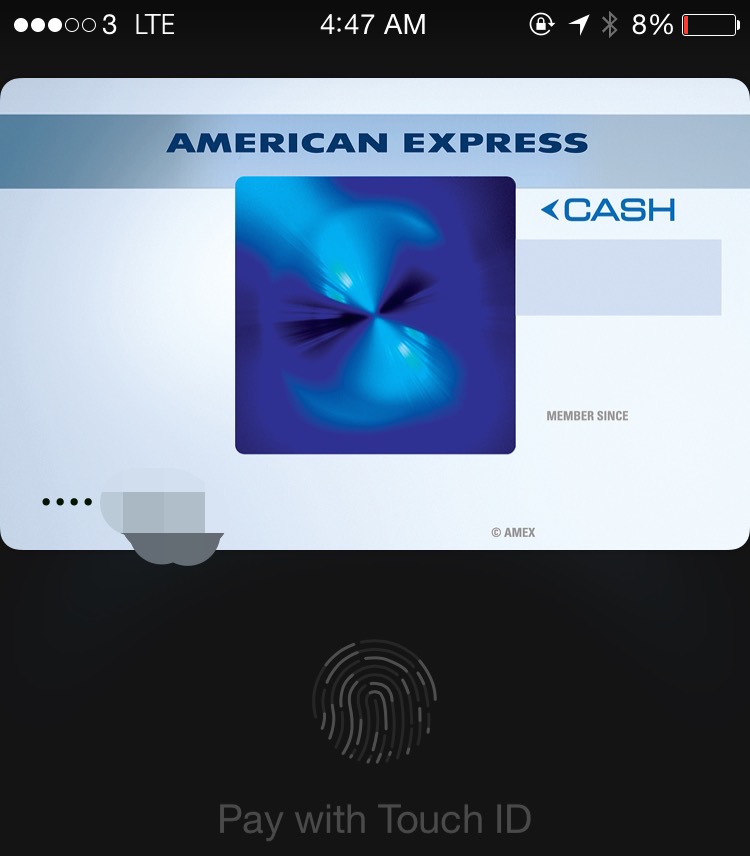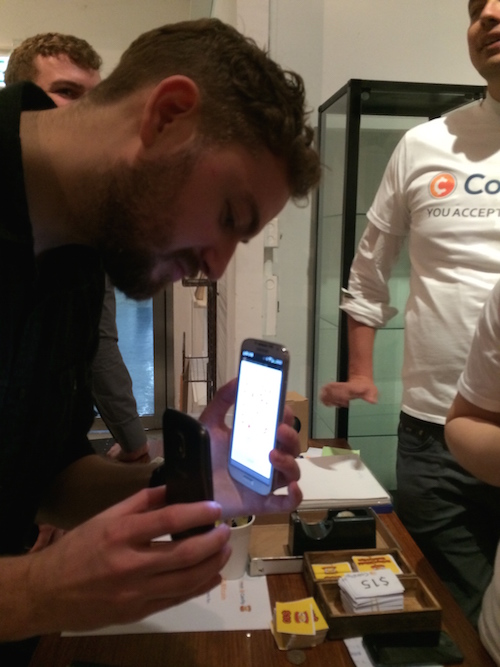Apple Pay: 4 lessons Bitcoin needs to learn
Apple Pay launched in the US on October 20, 2014, and has been doing very well. 1 million cards added in the first 3 days. In the first 3 weeks, just one merchant, Whole Foods, saw 150,000 Apple Pay transactions. Few Bitcoin accepting merchants are seeing anything close to that in transaction volume.
Let’s take a look at what Bitcoin can learn from Apple Pay’s success.
1. Customer demand, not merchant needs drives payment method adoption
Who thinks merchants were sitting around one day and thought, “You know, it really sucks that we don’t have to pay a fee to accept cash. Let’s start accepting credit cards so we can pay banks a fee!”? No one, that’s who.
Merchants started accepting credit cards because the smart ones figured out that customers wanted to pay with them, and were avoiding merchants that didn’t accept credit cards. The really good merchants also figured out that customers that pay with credit card spend more money.
The merchant deal when it comes to credit card acceptance is an increase in sales of 10% to 15% or more in exchange for a 2-3% fee. Credit cards let customers spend money they don’t have. For merchants, credit card fees let them offer an instant supplier line of credit without the management overhead or counter-party risk.
The rewards incentive structure of credit cards is such that banks take much of the fee paid by merchants and pay it directly to consumers in the form of cash back or point based rewards. This incentivizes customers to prefer credit card over cash or Bitcoin. After all, if you’re already paying for credit card fees, why not get the benefits?
Frankly, merchant fees are the merchant’s problem and anyone who has been a merchant (as I am) understands that you don’t get very far in business telling the customer about your problems.
A redditor nicely sums up many customers’ sentiment regarding merchant complaints about fees:
When the goddamned stores start buying me free smartphones, then we can see if there's some room left to fix their problems. Until then, they can f*ck themselves.
2. Consumers and businesses love their credit cards
Apple noticed what the “save the merchants from their fees” crowd ignores, people love their credit cards. Emotional attachment-style love.
This is especially true in hyper-competitive credit card markets like the USA. People dedicate lots of time picking a credit card that offers rewards that match their lifestyle or personality. There are even blogs and communities built up around finding the best credit card deal. The credit card one chooses is a reflection of her personality and aspirations.
The sports fan may get an NFL co-branded credit card that helps them get perks or discounts for their favorite team. The travel nut might get a travel rewards credit card co-branded with their favorite hotel chain or airline. The affluent or those with money to burn might spend $500 a year for the Platinum American Express. Those who’ve made it and want to let others know, will no doubt carry the same card as James Bond, the American Express Centurion Card, aka “The Black Card.”
Free lunch
Perhaps more importantly, credit cards give many people the illusion that they get something for nothing.
Credit cards also give consumers an excuse to treat themselves to something they otherwise couldn’t justify. A consumer can choose an airline credit card and use his reward points to get a pair of tickets to Hawaii for “free”. He can use those “free” tickets to justify spending additional money and vacation time on a week in Hawaii. Many people given the value of those tickets in cash rewards discounts on product purchases would have a harder time justifying the same trip. After all, that cash should probably be used for something more practical: retirement savings, the kids’ education, paying off the mortgage, etc. Airline rewards are great because they have no practical use besides flying around to somewhere cool.
This is even more true for business customers with expense accounts. They get to keep the rewards from company spending - essentially a legalized kickback - and view them as a fringe benefit. Hang out with professionals that travel a lot: consultants, bankers, lawyers, etc. and chances are when the bill comes they’ll start telling you how great their credit card is.
Apple Pay lets people keep what they love about their credit cards, both features and card design.
There is plenty of room in merchant fee structure for Bitcoin based payment systems to come up with even more attractive rewards programs for consumers and the people that pay on behalf of businesses.
3. Sex sells
A anti-Apple post BitPay proves Apple Pay is just “sexy tech” got a lot of attention on Reddit because it complained a lot about merchant problems. But the title is where the gold is. Sex sells. People want to use Apple Pay because it looks beautiful and physically feels good to use. You get a sense of control that you don’t have when a merchant takes your card and disappears behind a counter or into another room. Using Apple Pay feels like you’ve entered the future of fingerprint payment we’ve watched on TV and movies for decades.

Bitcoin payment online is just as sexy. Scan a QR code and send your coins to a website and watch as a few seconds later your browser automagically moves from the “please pay” page to the “payment received” page. Compared to the credit card experience of typing and retyping lots of numbers, online Bitcoin payment is magical.

Bitcoin payment in meatspace is anything but sexy or magical. QR codes don’t work very well weirdly lit places (like bars & restaurants) where consumers like to pay for things. And then there’s the awkward period of time where the customer’s wallet has indicated that bitcoin payment has been made, but the merchant’s app still shows “waiting for payment.” In best cases, this is only 5-10 seconds, but more often than not, poor internet connectivity or system issues results in payment confirmation taking 20 or more seconds.
The moment detractors start calling Bitcoin “just sexy tech” is the moment Bitcoin has won.
4. Lack of control feels horrible
Unlike Apple Pay where the consumer feels a sense of fingerprint control, even experienced coinheads paying with Bitcoin can feel a loss of control.
Just last week at a dinner and drinks event with the founders of ANX and OKCoin, one of our BAHK founding members tried to pay his bill from his exchange’s wallet app. He forgot that he needed to verify bitcoin withdrawals and there were a few tense minutes when he thought payment had been sent but the merchant denied receiving payment, with both sides blaming each other. Not cool. Both the merchant and the customer felt like they had lost control. People like products services that add control to their life, even if that control is illusionary.
